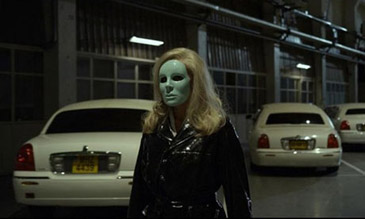Our Favorite Movies Of 2012, Part 2
By Steven Pate in Arts & Entertainment on Dec 31, 2012 9:30PM
 It continues to be a transitional era at the movies. The year 2012 saw a lot of revenue for Hollywood franchises (many of which used 3D and other technological up-sells to charge higher ticket prices) even though many were met with some disappointment (The Hobbit, Prometheus, to many The Dark Knight Rises). The digital revolution happened, and it was televised. We don’t believe in that “film is dead” hogwash around here, but it is getting harder for people throughout the country to see the best films in theaters, and will soon be nigh impossible for most of us to catch a non-digital film, even if we want to.
It continues to be a transitional era at the movies. The year 2012 saw a lot of revenue for Hollywood franchises (many of which used 3D and other technological up-sells to charge higher ticket prices) even though many were met with some disappointment (The Hobbit, Prometheus, to many The Dark Knight Rises). The digital revolution happened, and it was televised. We don’t believe in that “film is dead” hogwash around here, but it is getting harder for people throughout the country to see the best films in theaters, and will soon be nigh impossible for most of us to catch a non-digital film, even if we want to.
Luckily, there are still great places to find independent and repertory cinema in Chicago. Here are my favorites from what was available this year, in no particular order. Note that since you couldn’t find Zero Dark Thirty or Amour on screens in Chicago, you won’t find them on this list.
This is not a Film - The most exciting film of 2012 was a depiction of life at its most banal: sitting around the house, boiling some water, talking on the cell phone. That the frontiers of both the state of visual storytelling and the state of political oppression can be traced so starkly with such faint strokes is remarkable.
Moonrise Kingdom - Wes Anderson movies are like train sets. Each little world is painstakingly fashioned according to its designer’s vision and sealed hermetically from outside forces, a story engineered just-so in order to justify showing it off. Moonrise Kingdom and its retinue of children-who-act-like-adults and adults-who-won’t-grow-up is his most satisfyingly realized creation since The Royal Tenenbaums.
Holy Motors - A year after The Artist and Hugo peered telescopically through the navel of Hollywood’s distended belly and saw only warm fuzzies, wild child Leos Carax discovers getting sucked in there isn’t necessarily all pleasantness and light. Holy Motors looks backwards to see outwards, portraying film history as a black hole where the inescapable past is combined with the ambiguously real present and weird, infinite futures, all with a startling and unique intensity.
Once Upon a Time in Anatolia - Director Nuri Bilge Ceyla’s midnight trek through the mysteries of Asia Minor makes detectives of its audience, teaching patience and rewarding careful observation. This turns out to be a useful object lesson for a job where boredom is a constant companion and certainty all but impossible.
Jiro Dreams of Sushi - You come away from Jiro wanting to do anything with as much dedication as the eponymous chef prepares his perfect meals, but frightened at the toll it takes on anything else in his life. An expertly simple movie about an impossibly expert achievement.
The Master - Paul Thomas Anderson’s elliptic discourse on looking at interesting things emerged sphynx-like in the desert of the digital, demanding that we come to it on its own terms or not at all. Watching it felt like observing a chemist who wasn’t actually100% sure what would happen to the volatile chemicals he was mixing with a contagious but false sense of certainty. The result was ponderous, indelible and a lot of fun to argue about.
Lincoln - Spielberg doesn’t hit wrong notes. He may occasionally strike a tone that feels too right to be enjoyed without rolling your eyes at its neatness and predictability, but he assembles the whole with such unassailability that no complaint rises beyond a quibble.
Turin Horse - Béla Tarr’s film bathes its audience in a beautiful, elemental dread . I emerged just happy I had food to eat and shelter from the January temperatures. A film that somehow feels simultaneously like both the first and last film ever made, Turin Horse unspools the heaviness of existence and makes palpable the passage of time in a way that only cinema can.
Gerhard Richter Painting - There’s nothing like sitting in a darkened theater, watching the world’s most famous living painter push and pull his magic squeegee. Like Jiro, this film offers an opportunity to observe the process by which something renowned is created and a chance to be stripped with any prejudicial skepticism about its value through the single-mindedness of its creator.
Cosmopolis - Often works that strive this earnestly to capture the spirit of their times fall flat, but then David Cronenberg has a way of making this cardboard cut-out of a film just unsettling enough to spook you. Forget The Dark Knight Rises ‘scatterbrained riff on Occupy Wall Street, this is the essential film about the apocalyptic economic forces threatening to bring down the house.
Eds. Note: Check out Part 1.